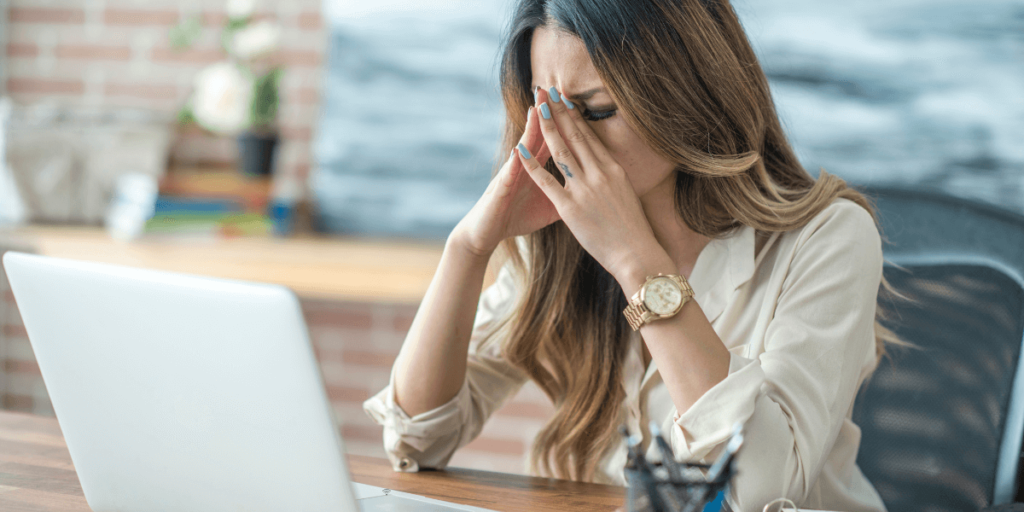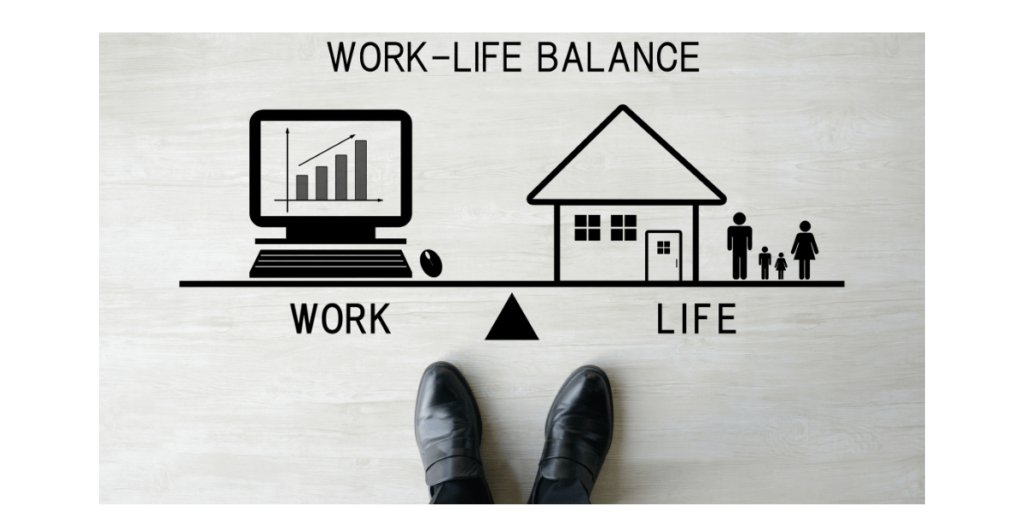In today’s fast-paced world, the importance of self-care cannot be overstated. With the constant noise and demands of modern life, finding practical ways to manage anxiety and improve mood is crucial for maintaining mental and emotional well-being. While some may think of self-care as indulgent or time-consuming, there are numerous practical self-care activities that can be seamlessly integrated into daily routines to provide relief and enhance one’s quality of life.
People often experience anxiety and mood fluctuations due to a myriad of factors, including work stress, personal challenges, and societal pressures. Practical self-care activities offer an accessible and effective way to cope with these stressors. They serve as a proactive approach to maintaining mental health, rather than only reacting to crises as they occur. By incorporating self-care into daily life, individuals can build resilience and stay centered.
Moreover, practical self-care activities are diverse and adaptable, ensuring that everyone can find something that works for them. From simple rituals like staying hydrated to more involved practices like guided imagery and volunteering, self-care doesn’t have to be complicated or expensive. The key is consistency and finding what resonates with you personally.
This article delves into 15 practical self-care activities, specifically designed to help with anxiety relief and mood improvement. Each activity is backed by research and tailored to be easily implemented into any lifestyle.
Defining Practical Self-Care
Practical self-care refers to simple yet effective activities that individuals can regularly practice to maintain their mental and emotional health. These activities are not overly demanding or time-consuming, making them feasible for everyday life. The goal of practical self-care is to provide sustainable ways to manage stress and promote well-being.
Practical self-care can include physical activities like exercise, emotional practices like journaling, and social interactions like spending time with loved ones. These activities are easy to integrate into daily routines and can significantly impact overall mental health. The focus is on creating a balanced lifestyle where self-care becomes an effortless part of daily life.
Incorporating practical self-care is about understanding your needs and creating a tailored plan that fits your lifestyle. Whether it’s a 5-minute meditation session in the morning or a weekly walk in the park, the key lies in consistency and mindfulness. By taking small steps daily, you can build a robust self-care routine that supports your well-being.
Daily Self-Care Rituals
Daily self-care rituals are the backbone of a sustainable self-care routine. These small, consistent actions can make a substantial difference in your mental health over time. Morning and evening routines, for example, are excellent opportunities to integrate self-care habits.
Morning self-care rituals might include activities like stretching, meditating, or enjoying a quiet cup of tea. These actions set a positive tone for the day ahead, providing a sense of calm and readiness. Simple affirmations or gratitude exercises can also be powerful tools to start the day on a positive note.
Evening self-care rituals are equally important. These can include winding down with a good book, practicing gentle yoga, or taking a relaxing bath. The goal is to signal to your body and mind that it’s time to relax and prepare for restful sleep. Consistency in these rituals can help improve sleep quality, reduce evening anxiety, and promote overall mood improvement.
| Morning Rituals | Evening Rituals |
|---|---|
| Stretching/Yoga | Reading a Book |
| Meditating | Gentle Yoga |
| Enjoying Tea/Coffee | Taking a Bath |
| Affirmations/Gratitude | Journaling |
Hydration and Its Effect on Mood
Staying hydrated is a simple yet often overlooked aspect of practical self-care. Water is essential for nearly every bodily function, including brain activity. Dehydration can lead to symptoms like headache, fatigue, and poor concentration, which can exacerbate feelings of anxiety and irritability.
Research has shown that staying hydrated can have a noticeable impact on mood. Proper hydration supports cognitive function and physical performance, both of which are tied to mental health. When the body is well-hydrated, it operates more efficiently, leading to a clearer mind and a more balanced emotional state.
Incorporating hydration into your self-care routine doesn’t have to be complicated. Carry a reusable water bottle with you, set reminders to drink water throughout the day, and consider starting your morning with a glass of water. These simple steps can profoundly affect your overall mood and anxiety levels.
How Music Therapy Reduces Anxiety
Music therapy is a powerful tool for anxiety relief and mood improvement. It involves using music to achieve therapeutic goals, whether through listening, playing instruments, or singing. The rhythm and harmony of music can be incredibly soothing and provide a sensory escape from the stresses of daily life.
Studies have shown that music can significantly reduce anxiety levels, lower blood pressure, and improve mood. Certain types of music, such as classical or ambient sounds, are particularly effective in calming the mind and promoting relaxation. Creating playlists tailored to your mood can offer immediate comfort and stress relief.
Incorporating music therapy into your routine can be as simple as setting aside time to listen to your favorite songs or creating a dedicated playlist for relaxation. You might also explore music-based activities like joining a choir or learning an instrument. The key is to find what resonates with you and makes you feel more at ease.
Decluttering and Its Mental Benefits
The state of your physical environment can significantly impact your mental health. Cluttered spaces tend to create a cluttered mind, leading to feelings of stress and overwhelm. Decluttering is a practical self-care activity that can provide a sense of control and peace.
Decluttering doesn’t have to be a daunting task. Start with small areas, like a drawer or a shelf, and gradually move on to larger spaces. The act of organizing and simplifying your environment can be incredibly therapeutic and provide a sense of accomplishment.
The mental benefits of decluttering include reduced stress, improved focus, and a greater sense of calm. A tidy space can also make it easier to relax and unwind, contributing to overall mood improvement. By making decluttering a regular part of your self-care routine, you can create a more serene and welcoming environment.
Socializing and Its Role in Mental Health
Social connections are crucial for maintaining mental health. Spending time with friends, family, and loved ones can provide emotional support, reduce feelings of loneliness, and promote happiness. Socializing is a practical self-care activity that can offer significant mental health benefits.
Regular social interactions can help reduce anxiety and depression symptoms. They provide a sense of belonging and community, which are vital for emotional well-being. Engaging in meaningful conversations and shared activities can also boost mood and decrease stress levels.
To incorporate socializing into your self-care routine, make an effort to reach out to friends and family regularly. Schedule regular catch-ups, join clubs or groups that interest you, and be open to meeting new people. Socializing doesn’t have to be extravagant or time-consuming; even a short phone call or coffee meetup can make a big difference.
Impact of Laughter Therapy
Laughter therapy, also known as humor therapy, involves using laughter to improve mental health. Laughter triggers the release of endorphins, the body’s natural feel-good chemicals, which can significantly reduce stress and enhance mood.
Studies have shown that laughter can lower stress hormones like cortisol and adrenaline, improve immune function, and enhance overall sense of well-being. Whether it’s through watching a funny movie, attending a comedy show, or simply laughing with friends, humor can be a powerful tool for anxiety relief.
Incorporating laughter therapy into your routine can be as simple as making time for activities that make you laugh. Surround yourself with people who have a good sense of humor, watch your favorite comedies, and don’t be afraid to laugh at yourself. Over time, you’ll find that laughter can be a natural and effective way to cope with stress and improve mood.
Guided Imagery for Relaxation
Guided imagery is a relaxation technique that involves visualizing calming and peaceful scenes to promote mental well-being. This practice can help reduce anxiety, improve focus, and enhance overall mood by providing a mental escape from stressors.
The process of guided imagery typically involves closing your eyes, taking deep breaths, and imagining a serene place like a beach, forest, or meadow. The more detailed and vivid your visualization, the more effective the technique will be. Guided imagery can be practiced anywhere and at any time, making it a convenient self-care activity.
Studies have shown that guided imagery can help reduce symptoms of anxiety and depression, lower stress levels, and improve overall emotional well-being. To incorporate guided imagery into your routine, you can find guided sessions online or simply practice visualizing on your own. Regular practice can lead to lasting benefits for your mental health.
| Benefits of Guided Imagery |
|---|
| Reduces Anxiety |
| Improves Focus |
| Enhances Mood |
| Lowers Stress Levels |
| Promotes Emotional Well-being |
The Benefits of a Digital Detox
In today’s digital age, constant connectivity can lead to information overload and increased stress. A digital detox involves taking a break from electronic devices to reduce screen time and improve mental well-being. This practice can provide significant relief from anxiety and promote overall mood improvement.
Reducing screen time can help lower stress levels, improve sleep quality, and enhance focus and productivity. It also provides an opportunity to engage in more mindful and fulfilling activities, such as reading, spending time in nature, or engaging in hobbies.
To implement a digital detox, set specific times of the day to unplug from technology. For example, you might establish tech-free zones or designated hours without screens. Gradually increasing these periods can help you develop a healthier relationship with technology and improve your mental health.
Volunteering and Giving Back
Volunteering and giving back to the community are powerful self-care activities that can boost mood and provide a sense of purpose. Helping others can create feelings of fulfillment and gratitude, which are crucial for mental well-being.
Studies have shown that volunteering can reduce symptoms of depression and anxiety, improve overall sense of well-being, and increase social connectivity. It provides an opportunity to make meaningful contributions to society, which can enhance self-esteem and life satisfaction.
To incorporate volunteering into your routine, find causes or organizations that resonate with your values and interests. Whether it’s participating in community events, mentoring, or supporting local charities, giving back can be a rewarding and therapeutic experience.
Maintaining a Positive Affirmations Diary
A positive affirmations diary involves writing down encouraging and uplifting statements about yourself daily. This practice can help rewire your brain to focus on positive thoughts, reducing anxiety and improving mood.
Research has shown that positive affirmations can help boost self-esteem, enhance overall mental health, and reduce negative thoughts. Writing down affirmations allows you to reinforce positive beliefs and cultivate a more optimistic outlook on life.
To start a positive affirmations diary, take a few minutes each day to write down statements that resonate with you. These could include affirmations like “I am capable and strong,” “I am worthy of love and respect,” or “I am growing and learning every day.” Regular practice can lead to lasting improvements in your mental well-being.
Healthy Boundaries in Relationships
Setting and maintaining healthy boundaries in relationships is a crucial aspect of practical self-care. Boundaries help preserve your mental well-being by ensuring that you have the space and respect you need in your interactions with others.
Healthy boundaries involve communicating your needs and limits clearly and assertively. This can help prevent feelings of resentment, burnout, and emotional exhaustion. Establishing boundaries allows you to take control of your time and energy, which is essential for stress management and mood improvement.
To implement healthy boundaries, start by identifying areas where you feel overwhelmed or stressed in your relationships. Communicate your needs openly and respectfully, and be consistent in maintaining these boundaries. Over time, you’ll find that healthy boundaries contribute to more balanced and fulfilling relationships.
| Tips for Healthy Boundaries |
|---|
| Communicate Clearly |
| Be Assertive |
| Respect Your Own Limits |
| Consistently Enforce Boundaries |
Breathing Techniques for Instant Calm
Breathing techniques are simple yet powerful tools for immediate anxiety relief. Focused breathing can help calm the nervous system, reduce stress, and promote a sense of relaxation.
One effective technique is the 4-7-8 breathing method, which involves inhaling for 4 seconds, holding the breath for 7 seconds, and exhaling for 8 seconds. This pattern helps slow down the heart rate and create a feeling of calm. Another technique is diaphragmatic breathing, where you breathe deeply into your diaphragm, rather than shallowly into your chest.
Incorporating breathing techniques into your daily routine can provide instant relief from anxiety and improve overall mood. Practice these techniques during moments of stress or as a preventive measure to maintain a sense of calm throughout the day.
Creating a Soothing Nighttime Routine
A soothing nighttime routine is essential for winding down and preparing the mind and body for restful sleep. Consistent sleep is crucial for mental health, as it allows your brain to recharge and process emotions.
A good nighttime routine might include activities like dimming the lights, reading a book, practicing gentle yoga, or taking a warm bath. Avoiding screens at least an hour before bed can also help improve sleep quality, as the blue light from devices can interfere with your natural sleep cycle.
To create a soothing nighttime routine, find activities that help you relax and unwind. Consistency is key – aim to go to bed and wake up at the same time every day. Over time, a calming routine can significantly reduce evening anxiety and improve your overall mood.
| Nighttime Routine Activities |
|---|
| Dimming Lights |
| Reading a Book |
| Practicing Gentle Yoga |
| Taking a Warm Bath |
| Avoiding Screens |
The Importance of Seeking Professional Help
While practical self-care activities can significantly improve mental health and well-being, it’s essential to recognize when professional help is needed. Therapy and counseling provide valuable tools and support for managing anxiety and mood disorders.
A mental health professional can offer personalized strategies and interventions tailored to your needs. They can also provide a safe space to explore your thoughts and feelings, helping you understand and address underlying issues contributing to your mental health challenges.
If you find that your anxiety or mood issues persist despite your best efforts, don’t hesitate to seek professional help. It’s a crucial step toward achieving lasting mental health and well-being.
Conclusion
Incorporating practical self-care activities into your daily routine can significantly improve your mental health and well-being. From staying hydrated to setting healthy boundaries, these activities are accessible and adaptable to any lifestyle. The key is consistency and mindfulness, making self-care a regular and effortless part of your day.
It’s important to remember that self-care is not a one-size-fits-all solution. Experiment with different activities to find what works best for you. Whether it’s engaging in laughter therapy, practicing guided imagery, or taking a digital detox, the goal is to create a self-care routine that supports your unique needs.
Ultimately, self-care is about nurturing yourself and recognizing the importance of mental and emotional health. By prioritizing self-care, you can build resilience, reduce anxiety, and improve your overall mood, leading to a healthier and happier life.
Recap
- Practical Self-Care: Simple, effective activities to maintain mental and emotional health.
- Daily Self-Care Rituals: Consistent morning and evening routines for stress management.
- Hydration: Essential for cognitive function and mood stability.
- Music Therapy: Reduces anxiety and enhances mood.
- Decluttering: Creates a serene environment and reduces stress.
- Socializing: Provides emotional support and reduces loneliness.
- Laughter Therapy: Boosts mood and reduces stress hormones.
- Guided Imagery: Promotes relaxation and mental escapism.
- Digital Detox: Reduces screen time for better mental health.
- Volunteering: Enhances mood and provides a sense of purpose.
- Positive Affirmations: Boosts self-esteem and reduces negative thoughts.
- Healthy Boundaries: Essential for balanced and fulfilling relationships.
- Breathing Techniques: Immediate anxiety relief and relaxation.
- Nighttime Routine: Prepares for restful sleep and reduces evening anxiety.
- Seeking Professional Help: Crucial for persistent mental health challenges.
FAQ
- What is practical self-care?
Practical self-care refers to simple, effective activities individuals can regularly practice to maintain their mental and emotional health. - How does hydration affect mood?
Staying hydrated supports cognitive function and overall mental health, reducing symptoms like headache and irritability. - Can music therapy really reduce anxiety?
Yes, studies have shown that music therapy can significantly lower anxiety levels and improve mood. - What are the mental benefits of decluttering?
Decluttering can reduce stress, improve focus, and create a sense of calm. - How does socializing impact mental health?
Social connections provide emotional support and reduce feelings of loneliness, contributing to overall happiness. - Is laughter therapy effective for mood improvement?
Yes, laughter triggers the release of endorphins, the body’s natural feel-good chemicals, reducing stress and enhancing mood. - What is guided imagery?
Guided imagery is a relaxation technique involving visualizing calming scenes to reduce anxiety and improve mood. - When should I seek professional help for anxiety?
If self-care activities are not sufficient and your anxiety persists, it’s important to seek professional help.
References
- Mind.org.uk. (2020). Guide to Decluttering and Mental Health.
- Mayo Clinic. (2021). Music Therapy for Anxiety Relief.
- American Psychological Association. (2020). The Importance of Seeking Professional Help.



